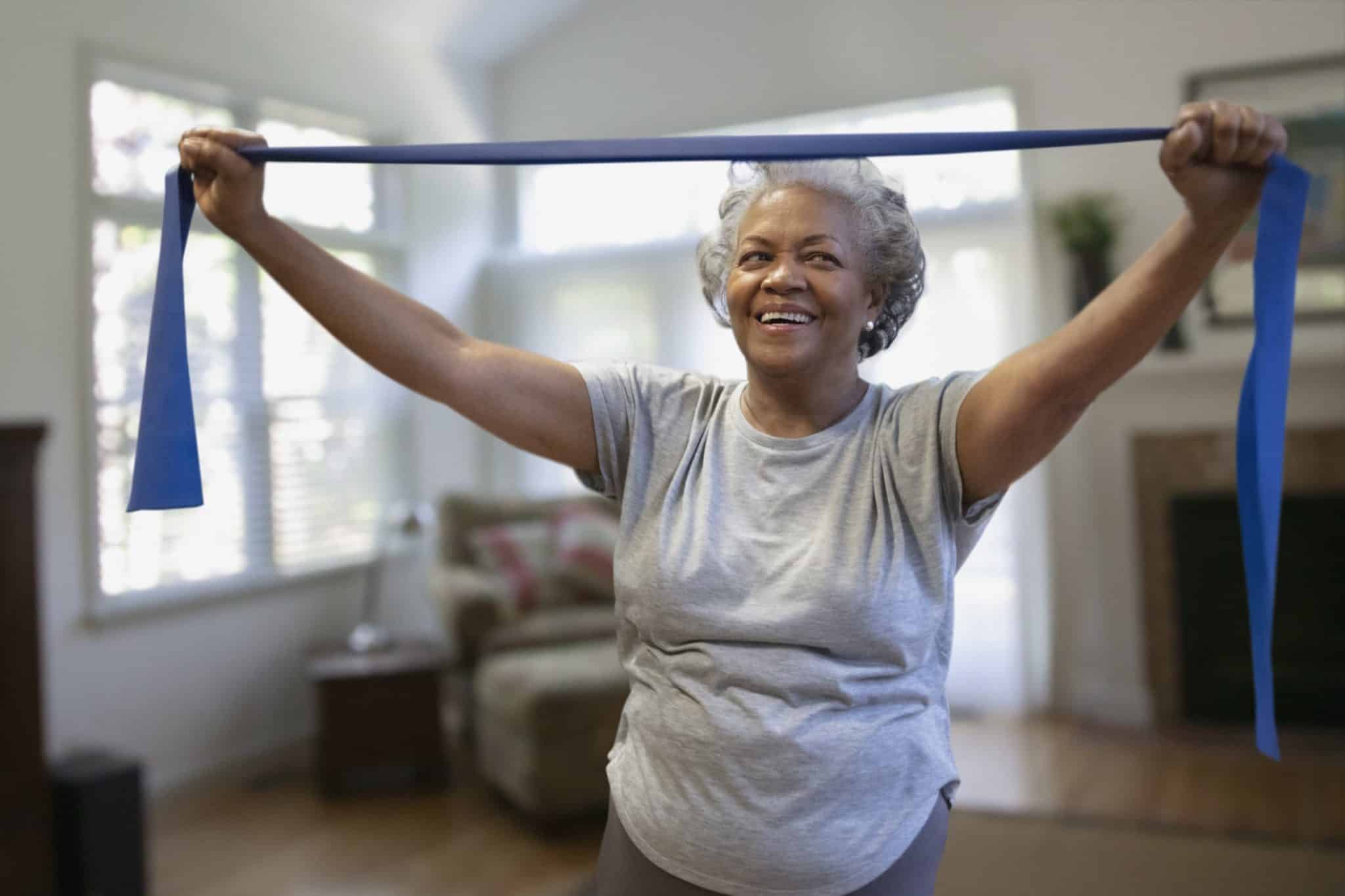How Older Adults Can Manage Chronic Pain

Did you know that nearly 20 million people in the United States are living with chronic pain? Those who suffer from it know that pain levels vary from mild to severe. When you’re experiencing a flare up, it can make simple everyday tasks difficult.
Chronic pain can be especially hard for seniors who may already be experiencing limited mobility, or who live alone. If you or a loved one suffer from chronic pain, here are several tips to help manage it.
Identify the stressors in your life and try to manage them. Stress contributes negatively to many existing health conditions and it can make chronic pain worse. While it’s not possible to entirely eliminate stress from your life, it is possible to manage it using methods like meditation, stretching, or listening to calming music. Being aware of what causes you stress is a good first step. Once you identify the catalysts, you can work on managing them one by one.
Review your diet with your doctor. The foods we consume have a huge effect on our body, and foods that cause inflammation can contribute to flare ups and other health problems. Everyone has a different diet, so write down everything you eat for the next two weeks and review the list with your doctor. They can identify any potential inflammatory foods and recommend changes to reduce chronic pain flare ups.
Stay active. It’s very tempting to remain sedentary when experiencing chronic pain, but remaining active, even if it’s a very light exercise, can help. Keeping active is especially important during these colder winter months because it helps your muscles stay strong and your joints healthy, which can reduce overall inflammation. Search YouTube for different low impact exercises like chair yoga, that can be performed in the comfort of your own home.
Avoid alcohol and cigarettes. Chronic pain is stressful and people commonly use alcohol and cigarettes as a way to cope. However, both can make this pain worse and can also contribute to other health problems. If you’re struggling to stop using alcohol and cigarettes, talk to your doctor.
Look into Cognitive Behavioral Therapy (CBT). With the help of a therapist, CBT teaches people with chronic pain to redirect their thoughts during periods of intense pain. CBT is used for a wide range of mental and physical health issues, and improves the overall regulation of emotions associated with pain.
Managing chronic pain with long-term care
Assisted living communities that offer long term care are well prepared to manage chronic pain in older adults. As mentioned above, stress can make chronic pain worse, so these communities do everything possible to meet resident’s medical needs, minimize their stress, and provide a comfortable living space for each one.
At The Shores, we have medical professionals onsite who know the health challenges of each resident. We provide individual attention to those suffering from chronic pain, to ensure this pain does not negatively impact their quality of life.
For more information about long term care in South Jersey, please contact UMC at The Shores today: https://umcommunities.org/theshores/contact/




